Cannabis and Canada: Why has drug policy changed?
- Published
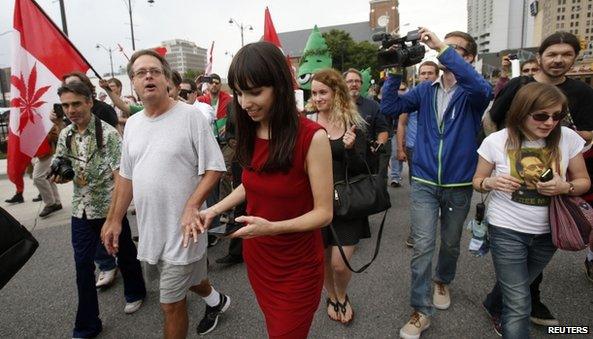
Marc Emery and his wife Jodie were greeted by supporters in Windsor, Canada on Tuesday
Canadian Marc Emery's arrest in 2005 was hailed by the US Drug Enforcement Agency (DEA) as a significant blow to the legalisation movement. Now, after a five-year stint in a US jail, Canada's "Prince of Pot" returns to a completely different cannabis landscape.
Marc Emery's voice is filled with an inescapable joy the day after he returned home to his native Canada after spending nearly five years in a US federal prison.
"The transition was surreal - I was in leg irons with a chain iron around my stomach, driving 12 hours from the jail in Louisiana," says Mr Emery, 56, speaking to the BBC from Toronto.
"Then, all of a sudden you're released and you're choosing your own food - it's a lovely feeling."
In 2005 Mr Emery was arrested and in 2010 he was extradited to the US for selling nearly $3m (£1.8m) worth of marijuana plant seeds from his cannabis store to US buyers.
Most of that money, Mr Emery says - nearly $2.1m of it - was donated to legalisation efforts in the US.
That was why, at the time of his arrest, the DEA crowed that jailing him would halt efforts to legalise marijuana in the US and Canada.
"Drug legalisation lobbyists now have one less pot of money to rely on," the DEA said at the time, external.
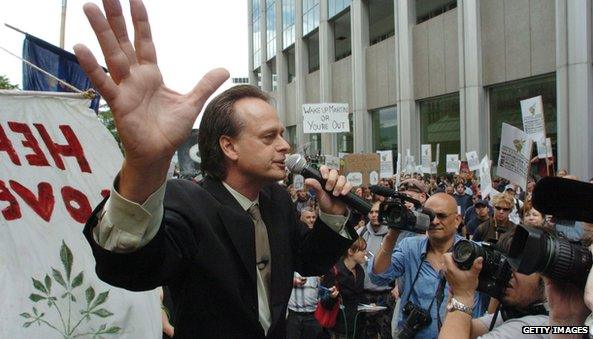
Mr Emery speaks to supporters at a legalisation rally in 2005, just before his arrest
Now, visibly paler and with a few more grey hairs, Mr Emery says he was heartened to find out that the millions of dollars he had donated to legalisation efforts in the US had an impact.
But, what he calls the "rich irony" of his situation - for instance, the Washington State prosecutor who put him in jail later ended up working with Mr Emery's wife, Jodie, to write Washington's recreational marijuana laws - has not escaped him.
"The silence is deafening in Canada and the cowardice not to discuss marijuana legalisation is really peculiar," he says, especially given how a refusal to legalise cannabis could be hurting the once vibrant British Columbian weed, or "BC Bud", economy.
Role reversal
For some, it is more than just peculiar.
In a reversal that few would have predicted, in the nearly five years that Mr Emery has been in jail, the US has taken the lead in the effort to legalise cannabis, stunning many observers who had long believed that Canada would be first.
"It's ironic isn't it?" says Robert Gordon, a professor of criminology at Simon Fraser University in Vancouver, Canada.
"We used to be bleating here in Canada that our drug policy was being regulated by the US and that the DEA and other US agencies would never allow Canada to shift to a more liberal regime in terms of drug regulation.
"Then, all of a sudden in the matter of a year, the roles reversed and certain states in the US are adopting the liberal regulation that many of us wanted in Canada," he says.

Canada's cannabis laws
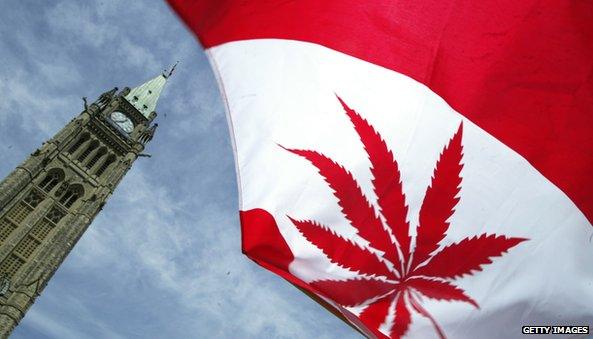
Cannabis is a Schedule II drug - that means growing, possessing, distributing and selling it is illegal
Possession can result in up to five years in jail
Production can result in up to seven years in jail
Trafficking can result in life imprisonment
Using cannabis for medicinal reasons is legal everywhere in Canada and run by a federal agency, Health Canada
According to recent statistics, 37,884 Canadians are authorised to possess dried cannabis

Unlike in the US, where a piecemeal approach to legalisation has resulted in several successes for legalisation advocates, in Canada - where medicinal marijuana is regulated on the federal, not provincial, level - legalisation efforts have stalled and, in some cases, got more strict.
Many have said that this is a result of the current Canadian government - controlled by the Conservative Prime Minister Stephen Harper, who has said marijuana should remain illegal to keep it away from children.
"In Canada, you've seen a significant increase in terms of marijuana possession arrests - they've been really aggressive on this," says Clayton Mosher, a professor at Washington State University, who notes that the arrests have not been evenly distributed.
But there has been a silver lining: in keeping marijuana legislation at a federal level, investors have been more keen, external to invest in medicinal marijuana growers in Canada, where at least the laws are more black and white.
'Winning the lottery'
And further south, the tightening in Canada has has been a boon to those hoping to cash in on the "green rush".
John Evich says he was convinced to invest in Top Shelf Cannabis, one of the first legal recreational marijuana stores to open in Bellingham, Washington, after running into a friend at the post office who asked him if he would join him in business if he "won the lotto" for a cannabis store licence.
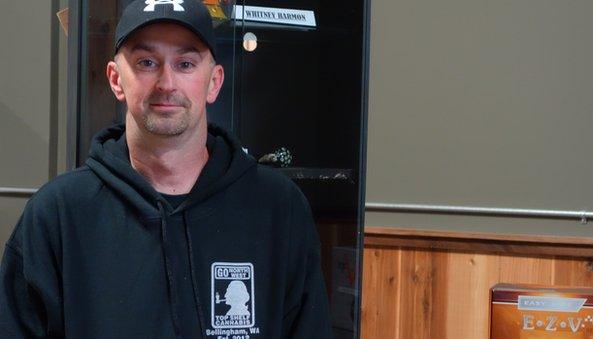
John Evich ended up becoming an investor in Top Shelf after a chance run-in at the post office
Now, Mr Evich says he has barely slept since the store opened on 6 July to hundreds of customers - over 10% of whom were Canadians who drove just an hour south to see what was happening.
Demand was so strong in the first few days - and supply so scarce - that Mr Evich and his business partners were forced on several occasions to temporarily close the shop and turn away customers,
Now Mr Evich has been reduced to stalking potential legal suppliers, looking for a few dozen pounds here, a few pounds there - all in order to keep up with demand, which was once directed northwards, at the estimated $4bn, external "BC Bud" industry.
"It's odd to me to see the huge change - there were thousands of pounds [of marijuana] a month coming down from BC to here and now we're getting all of them [the Canadians] coming down here," he says.
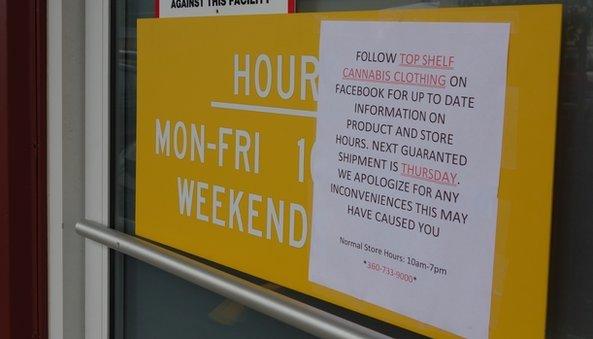
Top Shelf has sometimes been forced to close due to a limited cannabis supply in the area
Need for green
Mr Emery says that he hopes his return to Vancouver will help restart the legalisation debate in Canada.
His wife Jodie has said she plans to run for elected office as part of Justin Trudeau's Liberal Party, which has stated support for legalisation efforts, in the next nationwide elections, expected sometime in 2015.
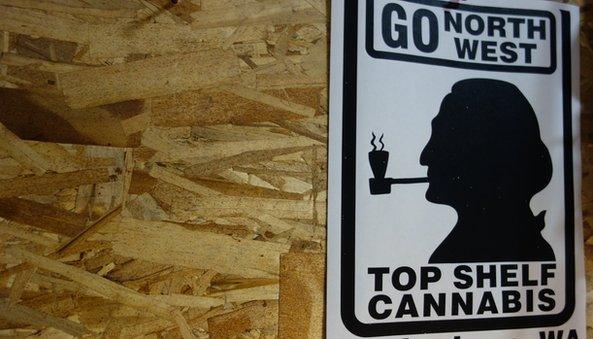
Top Shelf Cannabis says that it hopes to attract weekend customers from Canada
But for Mr Emery, the matter is more than political: he is returning to his business, the Cannabis Culture store.
"We need to earn some money - I owe back taxes," he says.
In some ways, like almost every other Canadian cannabis-related business, Mr Emery is now struggling to keep customers in Canada.
- Published26 July 2014
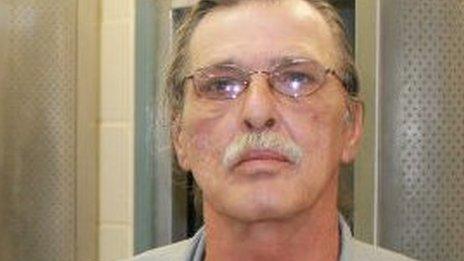
- Published4 April 2014
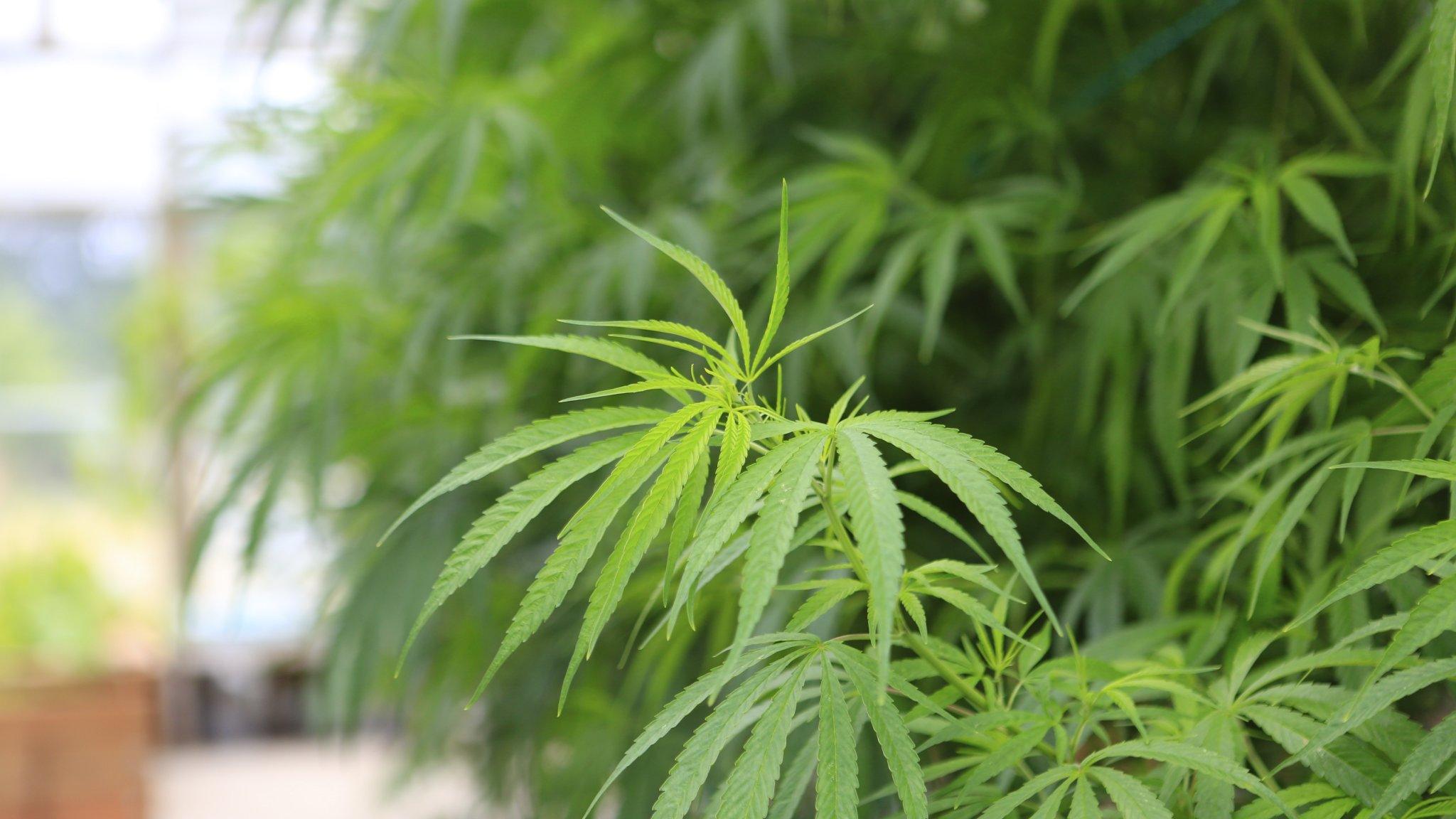
- Published20 February 2014
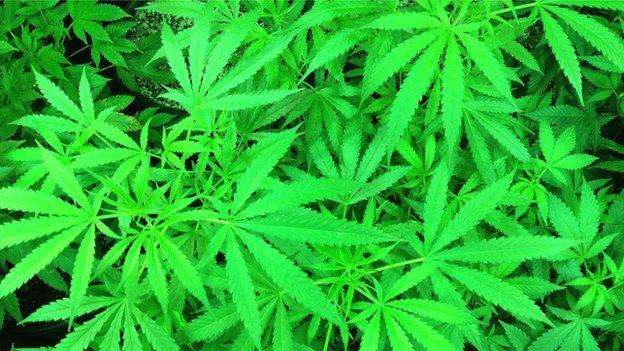
- Published25 May 2010
- Published20 May 2010